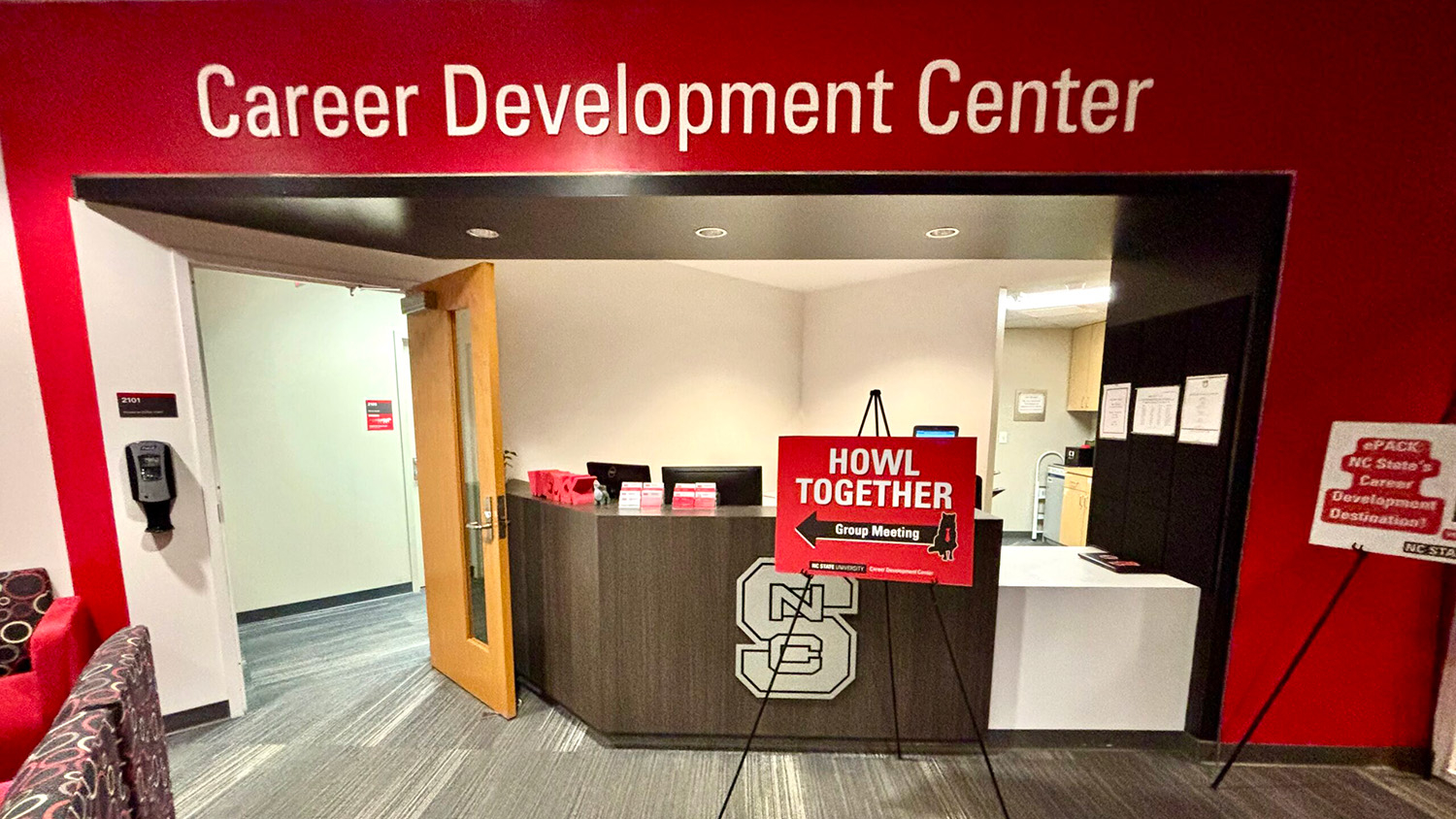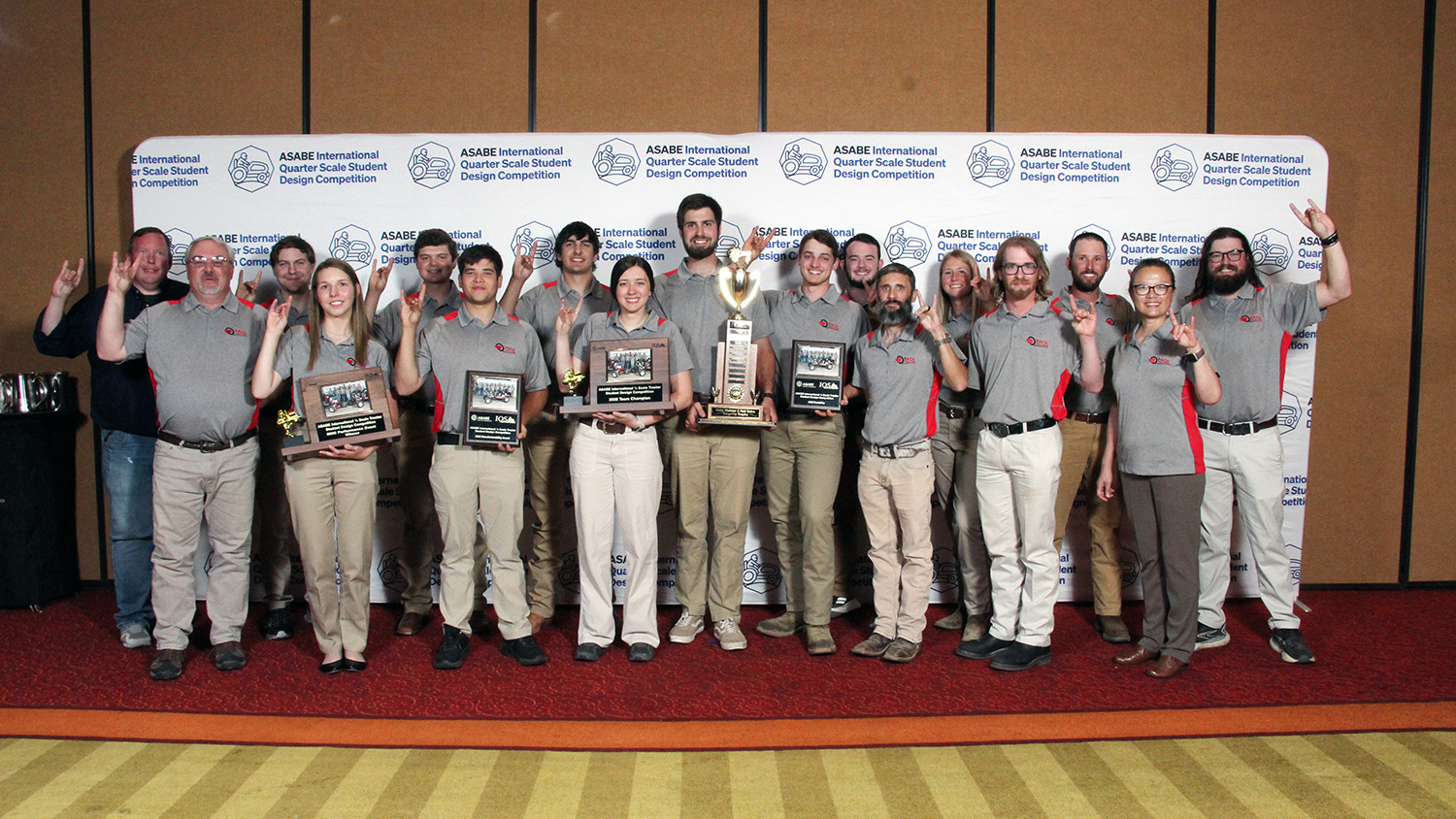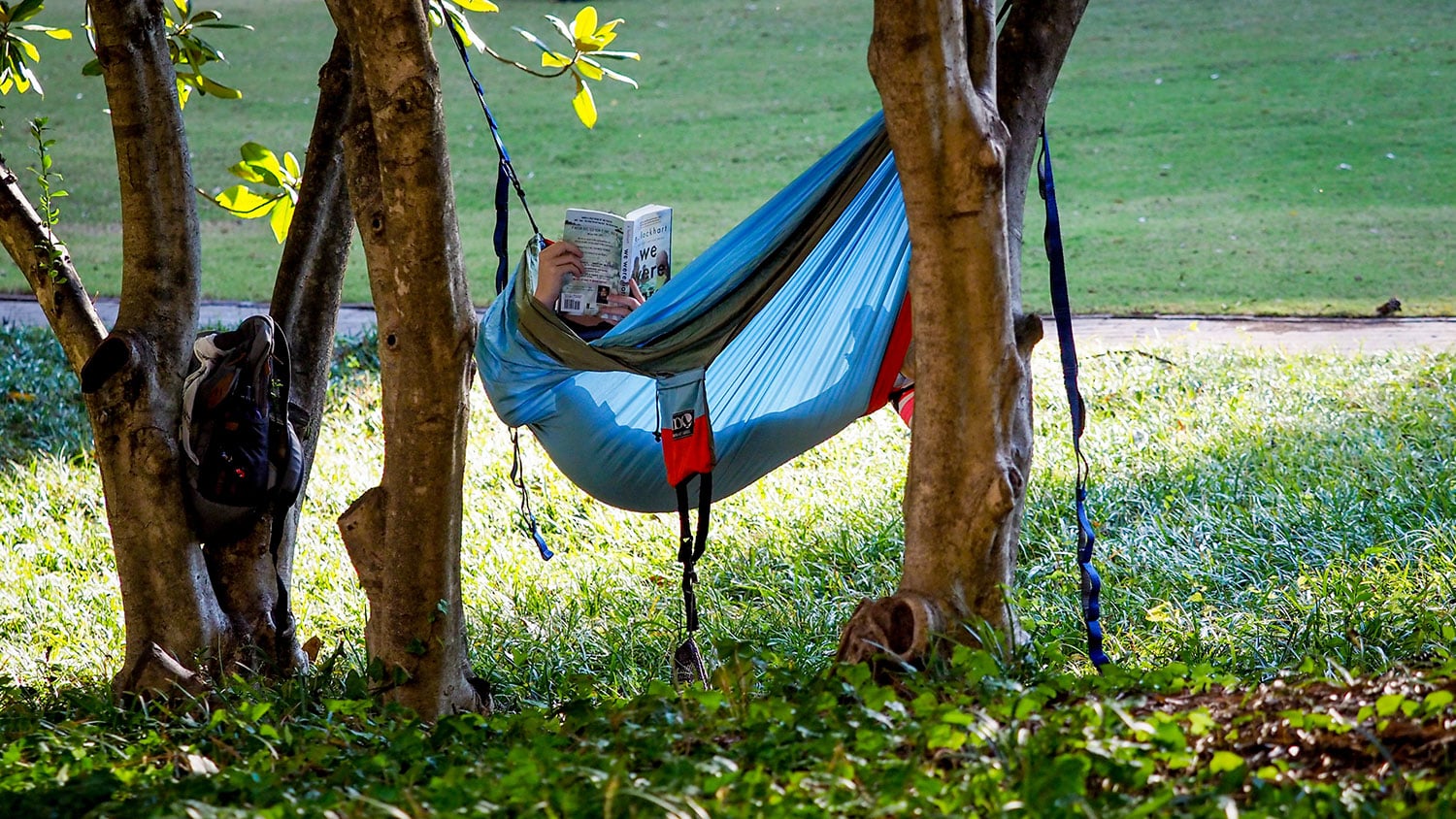Jessica Keiser (née Lackey) has never been afraid to pave her own path. As one of NC State’s first environmental engineering graduates in 1998, she entered and excelled in a male-dominated STEM field, continually improving systems and organizations throughout her career.
When Jessica’s daughter, Kendall, was diagnosed with level one autism, she and her husband, Daniel, tackled this new challenge with the same determination. Their commitment to Kendall’s well-being was unwavering, and they sought every opportunity to support her growth and success. Jessica took on leadership roles, serving on the board at Kendall’s school – a place dedicated to helping students with learning differences develop academically and socially in a safe, supportive environment.
The Keisers’ experience supporting their daughter inspired them to give back to the NC State community. Through collaboration with the Career Development Center and the center’s OnePack Empowered Program, they provided a generous donation to create Howl Together, a workshop series tailored for NC State students who identify as neurodivergent or face challenges with executive functioning.
Through Howl Together, the Keisers’ gift has established a transformative support system for neurodivergent students, sparking a ripple effect of inclusivity and connection across the NC State community.
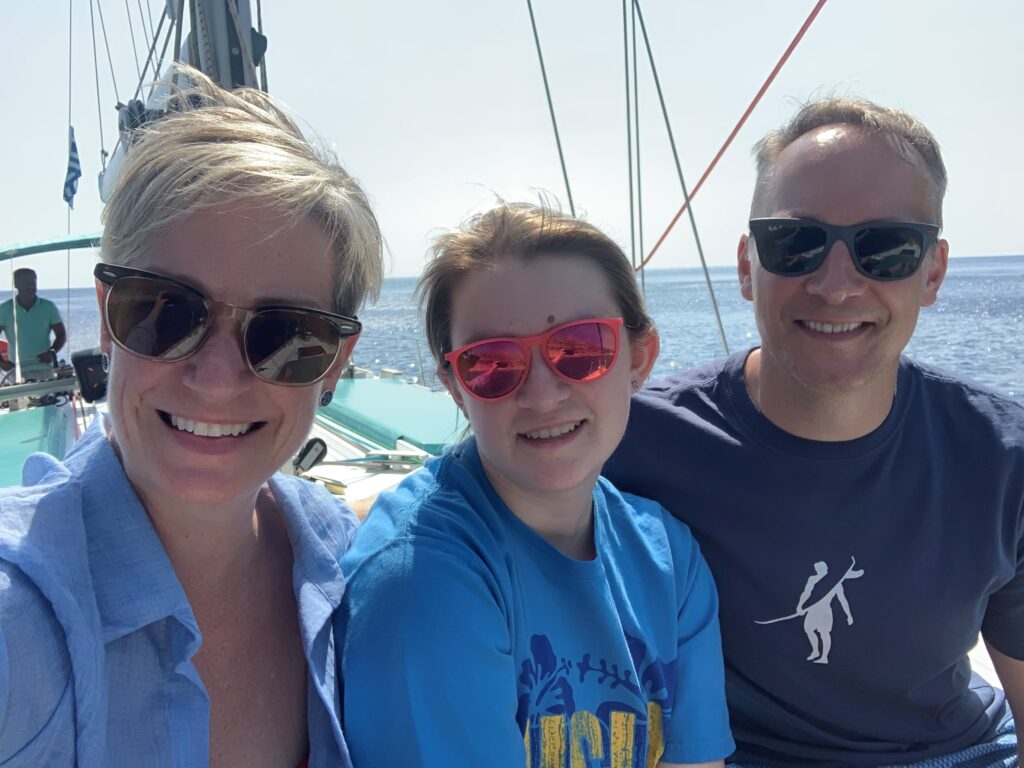
Howl Together at NC State – Transforming Student Support
Jessica’s experience as a board member at Kendall’s school and as a parent navigating the healthcare system deepened her understanding of the importance of community and “scaffolding” support for neurodivergent individuals.
“When we send our kids to school, they need what we call ‘scaffolding,’” Jessica explained. “Someone to build something up beside them and help them get going. Once they achieve the skill, you take the scaffolding down. You’re there to support them from the beginning, but then it becomes something of their own. When we do this, they continue to grow and blossom and achieve what they’re capable of. But when we don’t, as a society, they can fall behind and be left out.”
This insight inspired her to bring similar support practices to NC State through Howl Together. The program offers resources and a welcoming community, with workshops tailored to students’ specific needs. Covering areas like career preparation, self-advocacy and skill development, these workshops foster connection and encouragement.
As a lasting complement to these workshops, Pathways – a step-by-step guide within NC State’s career management system – was developed by Alexis Wells, the program coordinator hired with the support of the Keiser gift. Designed specifically for students with executive functioning challenges, Pathways breaks down tasks, like meeting with a career counselor, into bite-sized steps that students can access on their own schedule, providing what Wells describes as “small, manageable steps…it’s not a big wave of tasks; it’s just about building momentum toward their goals.”
A sort of “living” tool, Pathways will remain part of NC State’s resources for years to come, adaptable and ready to evolve with students’ changing needs. “It’s there 24-7 for any student to engage with, and it’s here forever,” shared Kelly Laraway, director of employer relations at the Career Development Center.
The Pathways tool has already become a model for other universities, ensuring that Wells’ foundational work will continue to support student success at NC State and beyond.
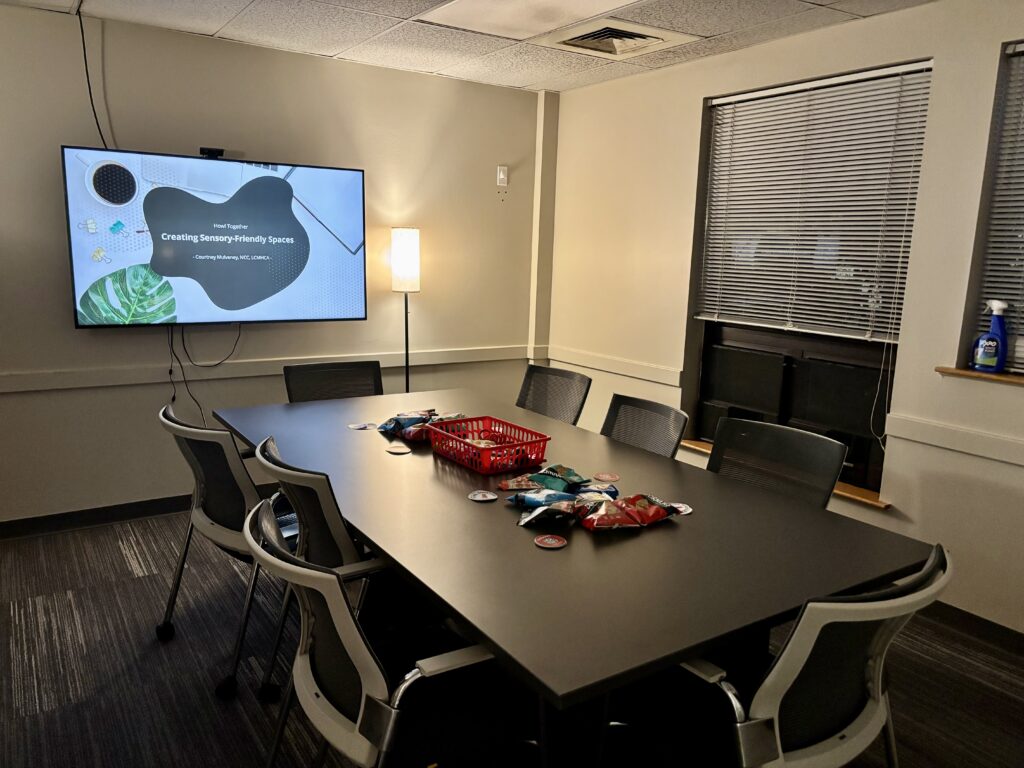
Creating a Welcoming Campus Environment
When envisioning their gift, the Keisers hoped to create a safe space where neurodivergent students could feel accepted and supported. Howl Together has brought this vision to life.
While the workshops and tools are essential, the Career Development Center recognizes that creating an inclusive environment is just as vital to fostering a culture of acceptance at NC State. With this focus, Wells and Laraway designed sessions tailored to neurodivergent students’ needs, offering sensory-friendly environments and content that speaks directly to their experiences.
“We have different manipulatives or fidget devices students can use during meetings (plus) different seating options…(like) floor cushions…(we want) students to feel like they can exist however they want to,” explained Wells. “We want to take away the awkwardness of trying to accommodate your needs.”
Even the program’s signage is intentional. Large welcome signs outside meeting rooms carry affirming messages like “Come on in, make yourself comfortable, sit wherever you’d like.” Laraway shared a memorable moment when she noticed a student who spotted the sign, saying, “The look on her face — she was just tickled. She was so happy because she was like, ‘Oh, okay, this is where I’m supposed to be.'”
Through these thoughtful touches, Howl Together fosters career skills and a sense of community, helping neurodivergent students feel accepted and confident throughout their college journey.
Collaboration and Future Goals
Howl Together is built on collaboration. Wells explained that she has met with various campus offices to gain insights into how best to serve and understand the specific needs of neurodivergent individuals. This program also partners with OnePack Empowered, the Disability Resource Office and the Academic Success Center to identify and refer participants to its workshops.
Moving forward, the Career Development Center aims to use student feedback data to design workshops that are even more closely aligned with what NC State students want and need. Wells has also developed general guidelines for hosting inclusive events and presentations, which other campus offices are now adopting.
Though only in its first semester, Howl Together has already positively impacted students and campus culture. The team is now focused on building a network of neurodiverse-friendly businesses and corporations to offer internships, attend career fairs and provide ongoing support. While creating this network takes time, Laraway and Wells are strategically leveraging existing campus networks to make initial connections, offering an excellent way for alumni and supporters to get involved.
The Keiser gift has laid a strong foundation for Howl Together, and the Career Development Center team envisions even greater potential. With additional funding, they hope to expand the program, increase its reach and strengthen connections between neurodivergent students and supportive employers.
“I feel like I just have so many ideas of how we can really expand and deepen our services with more time, which means more money,” Wells explained.
Lasting Impact at NC State
When asked how it feels knowing their generosity will impact so many students, the Keisers became emotional. For Daniel, it’s about making a “real difference” by extending the same opportunities that helped their daughter.
The Keisers want their experience to reach other families facing similar challenges. As Jessica explained, “What we’ve learned we don’t want to only apply to our daughter. (We want) to make sure that anything that has been given to our daughter can be given to the whole population. She has changed us, so how can we change it for everybody else?”
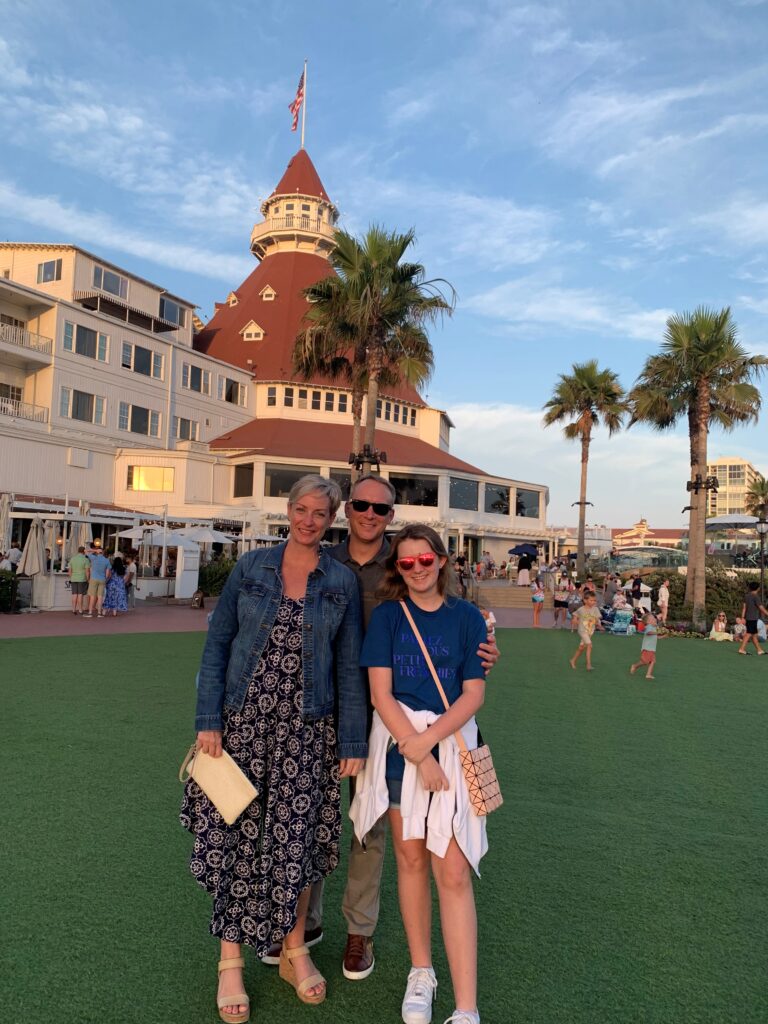
Looking forward, Jessica envisions a growing network of support, adding, “There’s probably a lot of parents out there who feel similar and wouldn’t mind adding to a pot to make a bigger contribution. We all know that little ripple effect.”
Through Howl Together, the Keisers’ gift has sparked a ripple effect that will continue to grow, building a long-lasting support system for neurodivergent students and fostering a culture of inclusivity and connection across the NC State community.
If you work for or know of a neurodiverse-friendly business, please email onepack-empowered@ncsu.edu.
If you would like to donate to Howl Together, click here.
This post was originally published in DASA.
- Categories:
